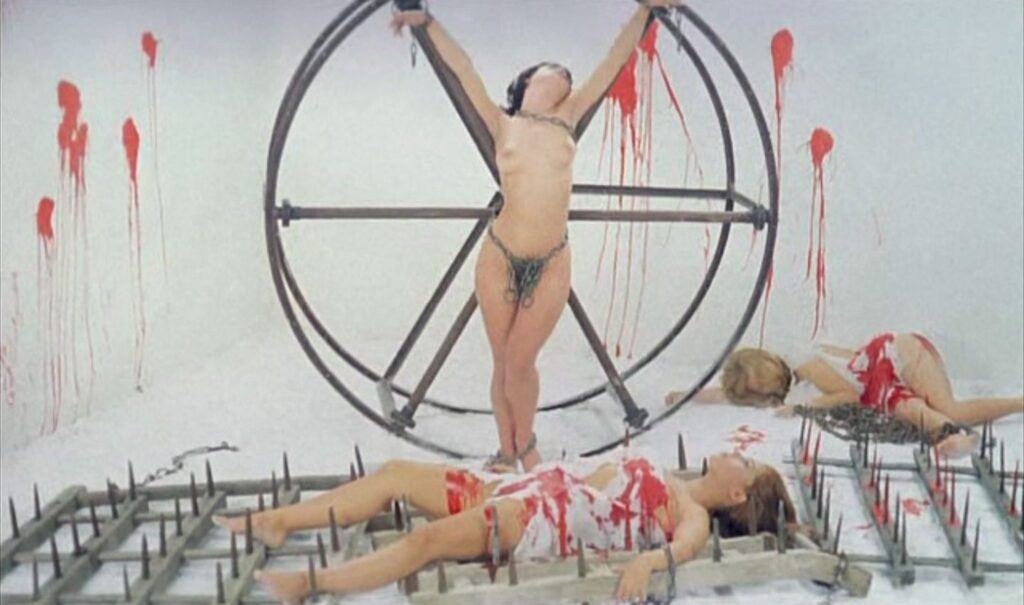
L’Eden et après (1970) is the first of two films Alain Robbe-Grillet made from the same footage; the other being N. Took The Dice (1971). Both films tell the same story of a group of student radicals who, under the thrall of a mysterious Dutchman (Pierre Zimmer), explore their sexual fantasies as a means of testing their commitment to their political philosophies. L’Eden et après is my preferred version; it focuses on Violette’s (Catherine Jourdan) experiences as opposed to Richard Leduc’s character’s in N. Took The Dice.
L’Eden et après, like so many of Robbe-Grillet’s films, deals with sex, time, and perception as intersecting narrative forces and experiences. This isn’t as nuanced or character driven as Trans-Europ-Express (1966), but in a way that works for the film. In L’Eden et après Robbe-Grillet treats his compositions almost as graphics, as icons, with static framing and a boldly minimal sense of composition. Unlike Trans-Europ-Express, L’Eden et après isn’t meant to have any pictorial association with our own physical world. Robbe-Grillet treats the world of L’Eden et après as a kind fantasy or expressionistic exorcism of sexual and political taboos.
The scenes of a caged Françoise Brion in L’Immortelle (1963) seem to be echoed throughout L’Eden et après where we find entire set pieces composed of various forms of bondage play. L’Eden et après may be a philosophical continuation of Trans-Europ-Express, but cinematographically it is descended from L’Immortelle. Except, unlike these earlier works, L’Eden et après makes glorious use of a candy-colored color palette courtesy of cinematographer Igor Luther.
L’Eden et après isn’t the best Robbe-Grillet film I’ve seen for sure, but it’s definitely worth checking out if one found his earlier works compelling. I would suggest, if one collects movies on disc, investing in the BFI boxed set Alain Robbe-Grillet: Six Films 1963 – 1974 over the Kino-Lorber/Redemption releases of Robbe-Grillet’s films individually. BFI outdoes Kino-Lorber/Redemption in terms of special features and packaging by a long shot, so it really is worth spending the extra dollars in my opinion.
